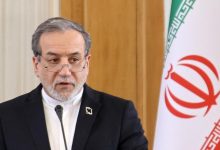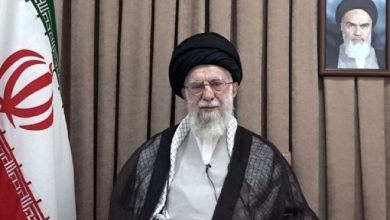A Cup of Coffee with Hamas: Washington’s Direct Talks Anger Israel as Boehler’s Statements Deepen the Crisis
An Israeli delegation heads to Doha to restart negotiations, as revelations about a direct U.S.-Hamas communication channel create political turmoil in Israel.

Watan-An Israeli technical delegation is set to leave for Doha today to resume talks with a Hamas delegation through mediators, following more than two weeks of stalled negotiations due to Israeli Prime Minister Netanyahu’s breach of the agreement. The talks come amid confusion in Israel after U.S. hostage affairs envoy Adam Boehler disclosed direct communication between him and Hamas leaders.
Steve Witkoff is expected to arrive in the region on Tuesday to join mediation efforts and oversee discussions surrounding his proposed deal, which suggests the release of ten hostages in exchange for a 60-day ceasefire.
The Biden administration, eager to secure a swift agreement that could pave the way for a larger political and regional deal—including expanding normalization and massive Saudi investments—has reportedly pressured Israel to return to negotiations despite earlier threats of a more aggressive military campaign.
Observers suggest that the limited-authority Israeli delegation’s visit to Doha may serve as a means to mitigate Netanyahu’s embarrassment following Boehler’s revelations about the direct U.S.-Hamas talks, which could undermine Israel’s role in negotiations. Netanyahu, who prides himself on being Washington’s closest ally, reportedly assured his cabinet that coordination with the U.S. remains intact.

U.S.-Hamas Direct Channel Sparks Israeli Shock
In an effort to clarify his stance, Boehler granted interviews to Hebrew media, further fueling Israeli unease. Yedioth Ahronoth’s political cartoon captures the shock: Netanyahu walks into a room to find Trump sitting at a table with a Hamas militant.
Boehler disclosed that the direct negotiations aim to persuade Hamas to accept the Witkoff proposal, which includes the release of ten living hostages—among them American citizen Idan Alexander—in exchange for a 60-day ceasefire and increased humanitarian aid. He also claimed that Hamas was willing to discuss a long-term truce of five to ten years, disarmament under international supervision, and political participation.
Israeli officials reacted with alarm. According to Israeli public radio, Boehler’s remarks caused significant tension between the Israeli government and the Biden administration for three main reasons:
- Israel opposes direct engagement with Hamas, especially given Khalil al-Hayya’s role in the October 7 attack.
- Israel was not informed in advance about the direct U.S.-Hamas talks.
- Boehler’s relatively positive tone toward Hamas, including comments about being able to sit and have coffee with its leaders.
Israeli Minister Ron Dermer reportedly confronted Boehler angrily, while Boehler later confided that he was surprised by Dermer’s bluntness.

Trump’s Nobel Peace Prize Ambitions and Israel’s Dilemma
According to Yedioth Ahronoth, Trump sees a potential Nobel Peace Prize as a personal goal, with plans to visit Saudi Arabia in 45 days. To achieve this, he needs to resolve the hostage crisis, and if Netanyahu proves an obstacle, Trump may sideline him—just as he did with Zelensky at the White House.
Israel had attempted to discredit Boehler’s role, portraying him as an outsider, but this effort failed. He was working in coordination with Witkoff, with the direct U.S.-Hamas channel designed to prepare Hamas for the Witkoff deal.
Israeli sources dismissed Boehler’s optimism, insisting that Israel will not accept a ceasefire with Hamas and is preparing for an intensified war. Finance Minister Bezalel Smotrich described Boehler as a junior official acting on his own, while former Israeli ambassador to Washington Michael Oren warned against rewarding “resistance and terrorism.”
Meanwhile, opposition leader Yair Golan argued that Netanyahu’s mismanagement had inadvertently legitimized Hamas as a negotiating partner, pushing the U.S. toward alternative strategies.
In a veiled warning, Boehler hinted in an interview that if Israel refuses to cooperate, the U.S. will continue pushing its own interests. Despite Netanyahu’s maneuvering, the coming weeks may reveal whether he chooses to cooperate with mediators or delay further, at least until his government secures budget approval later this month.






